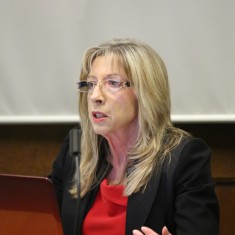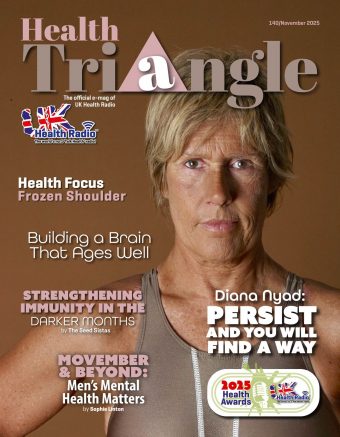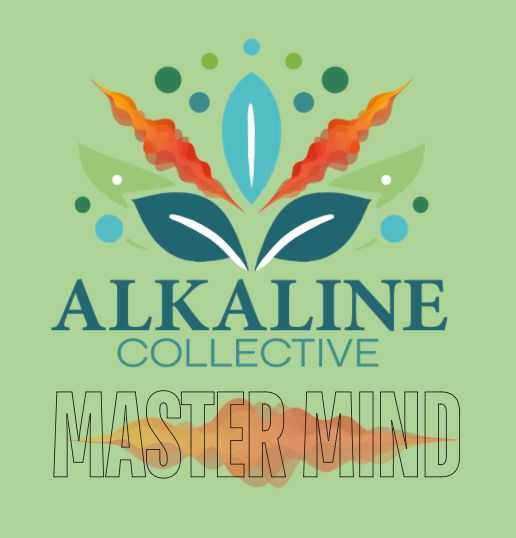Brightest minds in neuroscience and psychiatry share their research at Cambridge Science Festival
Why is anxiety on the increase? How does the brain generate self-consciousness? How do recent genetic discoveries provide a new direction for neuroscientific research?
This year’s Cambridge Science Festival (10-23 March) will feature talks that cover these issues and more from some of the most notable researchers in the fields of neuroscience and psychiatry.
16% of us in Britain have a common mental health disorder of anxiety or depression, according to Professor Barbara Sahakian from the Department of Psychiatry at the University of Cambridge, and these figures are increasing. Why is this? Why do people react to stress differently? How can we develop resilience and wellbeing?
 On Tuesday, 11 March Professor Sahakian (pictured) will discuss these questions with Dr Annette Bruhl, visiting clinical researcher at the Department of Psychiatry, Cambridge and Professor David Baldwin from the University of Southampton. They will discuss how our brains and bodies change when we are stressed and anxious and what pharmacological and psychological treatments are available for people with anxiety disorders. This event is sponsored by the British Association for Psychopharmacology.
On Tuesday, 11 March Professor Sahakian (pictured) will discuss these questions with Dr Annette Bruhl, visiting clinical researcher at the Department of Psychiatry, Cambridge and Professor David Baldwin from the University of Southampton. They will discuss how our brains and bodies change when we are stressed and anxious and what pharmacological and psychological treatments are available for people with anxiety disorders. This event is sponsored by the British Association for Psychopharmacology.
“Many of us wake up in the morning, jump on the scales and carefully consider what we are having for breakfast. In fact, given that we are early in 2014, we may be thinking about how we can change our lifestyle to be physically healthier. However, do many of us reflect on the stresses and tensions that we face, and how we might ensure that we have good brain health? In a global environment, with reduced resources due to austerity, we are increasingly required to multitask and take on additional responsibilities. Fortunately, for many of us, we have resilience and may take on these challenges enthusiastically. However, with increasing day-to-day stress, it is important to reflect on how we might improve our cognition and wellbeing, to ensure we enjoy life as individuals and can contribute to a flourishing society. In our session entitled Overcoming stress and anxiety: healthy brains for a flourishing society, we will consider how to maintain good brain health, methods for reducing stress and also what can be done if we succumb to the stresses and pressures of everyday life.
“Anxiety disorders can be debilitating for the individual as they stop people being able to perform their activities of daily living at home or work. These disorders are also expensive for governments since they frequently keep people off work. In our session, we will also discuss pharmacological and psychological treatments for anxiety disorders, including cognitive behavioural and mindfulness therapies.”
During the talk, The neuroscience of self: how the brain creates ‘me’ on Wednesday 12 March, Dr Jane Aspell from Anglia Ruskin University will discuss how the brain generates self-consciousness, and how it distinguishes between self and world.
Dr Aspell explained the basis of her talk: “What are you? We seem to know our ‘self’ better than anything else in the world but do we really know what a ‘self’ is, what it is made up of? Most people think about personality, identity and character when they hear the word ‘self’ but what lies at their foundation? As babies we first identify with our physical bodies and we must learn to distinguish our own body from the rest of the world.”
Dr Aspell will discuss exciting new evidence from neuroscience that the brain’s model of our own body provides the basis for self-consciousness. She will present some of her recent studies in which something akin to an ‘out of body experience’ was induced in healthy subjects by confusing their senses using virtual reality, alongside the neuroscientific explanation of out-of-body experiences in which the self seems to be located outside of the body. Her research shows that not only is it possible to experience your self located outside of your body, you can also experience a different body as your own.
Developing new therapies for major psychiatric disorders is one of the greatest challenges facing medicine, according to Professor Michael Owen from Cardiff University. On Friday, 14 March, during the Cambridge Neuroscience public lecture, Genes, brains and psychiatry, Professor Owen will reveal how advances in neuroscience have given us many new tools to meet this challenge, how recent genetic discoveries provide a new direction for research and also how this work will need to incorporate important conceptual changes to succeed.
Speaking about the challenges facing practitioners, Professor Owen said, “Mental illness can be highly distressing and disabling and is a major economic as well as social burden. Current therapies have many shortcomings and new treatments are urgently required. Progress to date has been hampered by our ignorance of fundamental disease mechanisms and by the fact that our diagnoses are largely descriptive. These difficulties have resulted in many pharmaceutical companies abandoning drug discovery in psychiatry.
“This comes at a time when scientific and technological advances in neuroscience and genetics have placed us in a strong position to advance our understanding of basic disease mechanisms, which we must do if we are to develop new and more effective treatments.
“Recent genetic findings have highlighted the shortcomings of traditional diagnostic approaches and underscored the complexity of psychiatric disorders. However, in spite of this, they are beginning to converge on specific brain mechanisms that are fundamental to these disorders. Further advances will require a move away from traditional diagnostic approaches towards new ways of relating mechanisms to specific disturbances in psychological function. They will also require more large-scale and collaborative studies.
“However, perhaps the biggest challenge will be to mobilise all those with an interest in developing better psychiatric treatments to make the political case that now is the time for a concerted and coordinated research effort.”
Dr Rachel Perkins will talk about Creating Mentally Inclusive Communities: Embracing Distress as Part of Everyday Life at the 11th Annual Disability Lecture on Thursday 20 March. A clinical psychologist, Perkins worked in NHS mental health services for 30 years and is now a senior consultant with the Implementing Recovery through Organisational Change programme. She lives and works with a long-term mental health condition. In 2010 she was voted Mind Champion of the Year and awarded an OBE for services to mental health.
Dr Perkins commented: “My major concern from 30 years working in – and as a user of – mental health services is that we tend to believe the answer to mental health challenges is treatment and therapy. While I am not against treatment and therapy, they are only a small part of living with – and moving beyond – mental health problems.”
Instead, she says we should tackle social and interpersonal barriers in the same way as physical barriers. “We accommodate those who have problems navigating the physical world with ramps and hearing loops, and we need the same approach for people with mental health challenges – the mental health equivalent of a ramp,” she said.
At work, this means “lots of boring practicalities” as well as embracing distress as part of everyday life. “It’s not rocket science. For managers, lots of it is simple stuff: a buddy, someone to talk to, a bit of extra supervision,” Perkins explained. “We need to embrace distress – in most of our communities we do the stiff upper lip thing like it’s going out of style. Tears and anger are human, but they are seen as unusual at work, something to put into the realms of therapy. Our work processes should cope with these fluctuations in people’s lives.”
Other events at the Science Festival covering neuroscience and psychiatry include:
- Do hormones in the womb affect how your brain and mind develops? On 15 March. Professor Simon Baron-Cohen will discuss how testosterone produced by the baby in the womb has irreversible effects on brain development, and describes a unique experiment conducted on hundreds of Cambridge children, measuring their testosterone in the womb and following them as they grow up, to see how this remarkable molecule affects their brains and minds.
- What’s wrong with pink? On 12 March, neuroscientist, Professor Melissa Hines, will discuss why certain toys are embraced by different genders, and why girls choose pink dolls, while boys play with vehicles of pretty much any colour, as long as it is not pink. Professor Hines will illuminate both how humans develop and how societal pressures act upon children.
For more information please visit: www.cam.ac.uk/science-festival (Bookings for the Festival opened on Monday, 3 February)
Facebook: www.facebook.com/Cambridgesciencefestival Twitter: https://twitter.com/camscience
To download the Festival app, please visit:www.cam.ac.uk/csf/app
Photos courtesy of Chris Loades






















vaccinefree
2018-06-15 20:33:02